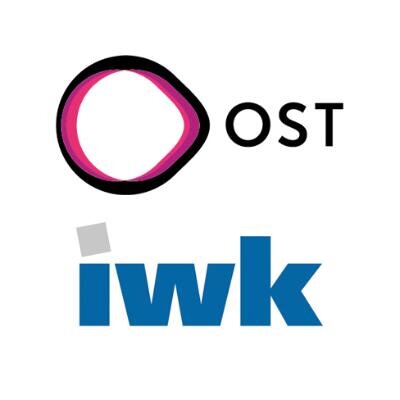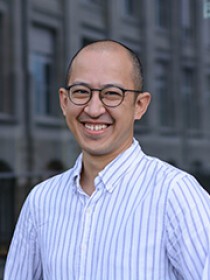

IWK - the combination of science and practice for innovative solutions with modern materials, processes and multi-material technology
Applied research and development in plastics technology
With its seven departments, the IWK is Switzerland's largest plastics institute and sees itself as a link between the university and companies in the regional and national sectors. The training and further education of students and employees ensures the direct transfer of knowledge between teaching and practice.
The IWK also supports its customers along the entire value chain with innovative and professional contributions to application-oriented research and development - from the idea to the finished product. The institute always takes up current topics, such as B. Function and process integration, digitization in production or recycling topics.
The modern infrastructure of the institute in the Techpark guarantees the efficient and practical handling of projects according to the current state of the art.
Competencies from a single source
Material analysis and compounding:
Material characterization and testing, material selection, development and production, damage analysis, material composites, biomaterials, adhesives
Component development:
Design and layout of plastic and composite structures, lightweight construction, structural analysis, process simulation, recycling concepts, 3D printing
Production technology:
Almost all plastics processing methods for thermoplastics and composites; Tool and process technology, function and process integration, additive manufacturing, bonding and welding technology, metalworking, surface modification through laser metal deposition
Smart Factory:
PDM, big data, data analysis, machine learning, process optimization, maintenance
Department of 3D Printing / Additive Manufacturing
The 3D Printing / Additive Manufacturing (AM) department deals with many topics related to 3D printing; from the manufacture of components using a wide variety of systems, through the construction and optimization of components to the qualification and parameter development of newly developed materials. In many projects from the other departments, there are also useful options in which the know-how of additive manufacturing can be included. Be it z. B. only for the production of a prototype.
Material development and qualification
Together with the Compounding / Extrusion department, materials can be newly developed or modified for specific applications. In a next step, customer-specific granulates for the Freeformer or filaments for FFF printers can be produced. In addition, extensive know-how is available for the development and modification of powders for the SLS area.
Process design and optimization
The use of additive manufacturing in a wide variety of applications requires adapted processes. Our various printing technologies offer a wide variety of options. The determination of printing parameters to improve the component quality or for customer-specific materials is an important topic where we as a department can support with our know-how. Optimizations on the component, its surface or topology and special post-treatments allow the component quality and process reliability to be increased.
In cooperation with the fiber composite technology / lightweight construction department, components can be manufactured with minimal component weight in terms of strength and rigidity.
The Metal Manufacturing division offers the additive manufacturing of metal parts using the hybrid LMD process.
With the CHOCOFORMER, developed by students and engineers, you can additively produce delicacies from chocolate.
Development and consulting
Additive manufacturing requires an AM-compliant component design for a stable manufacturing process. 3D printing offers advantages especially for complex geometries, functional integration, part reduction, lightweight construction and rapid prototyping. In all these areas we offer competent advice and support in the construction, design and manufacturing process.
Digitalization
Digitization is very important in today's world. Process monitoring and data recording make it easier to identify the causes of errors. With simulation software specially designed for the additive manufacturing process, shrinkage and warpage can be calculated and compensated. This enables components to be manufactured with improved shape and position tolerances and time-consuming tests to be reduced to a minimum.
Education in research and training
As an institute of the OST - Ostschweizer Fachhochschule, we are involved in the teaching of students in the form of lectures and internships. Several bachelor and master theses are accompanied each semester, and these are often done together with industrial partners.
Regular CAS courses are offered for further training in the field of additive manufacturing.
The OSTlab school laboratory enables young people to gain an insight into various technical professions. As a task in the AM area, the students should optimize an existing injection molded product and produce a prototype of it with the help of a 3D printer.
